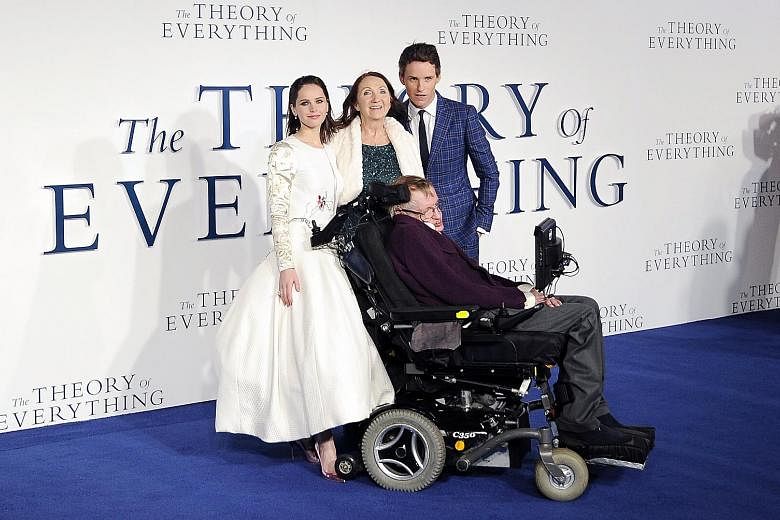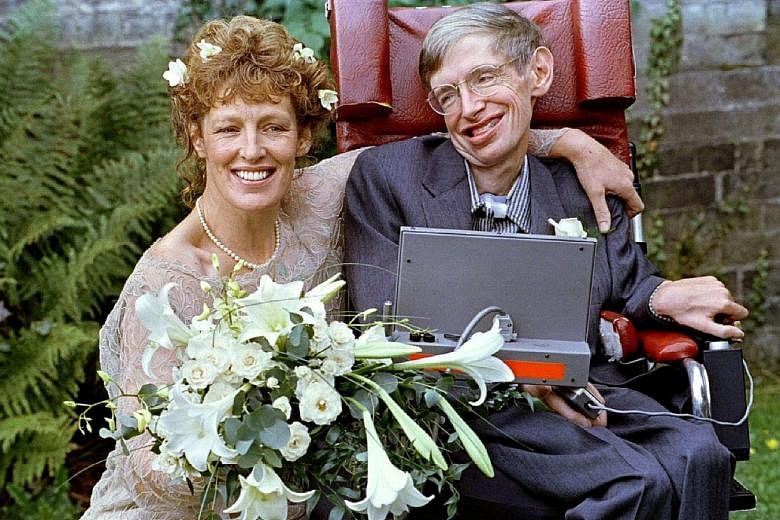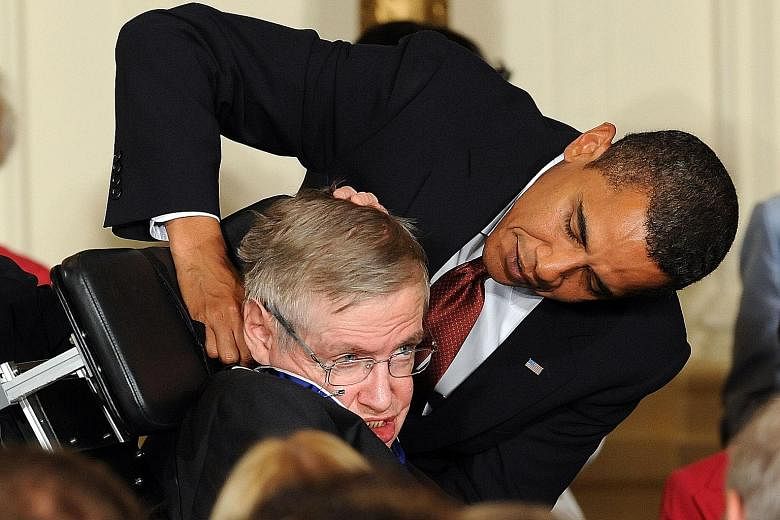LONDON • For most of his life, Stephen Hawking could not speak, yet his discoveries reverberated around the world.
The cosmologist had to use a wheelchair, and depended on a computerised voice system for communication after he was diagnosed with amyotrophic lateral sclerosis in 1963.
The motor neurone disease attacked the nerves controlling his voluntary movement and, at the age of 21, he was given less than three years to live.
"When you are faced with the possibility of an early death," he said, "it makes you realise that life is worth living and that there are a lot of things you want to do."
In 1965, he married his university sweetheart Jane Wilde, a linguistics student. The couple went on to have three children: Robert, Lucy and Timothy.
Until 1974, Dr Hawking was still able to feed himself and to get in and out of bed. After 1980, care was supplemented by nurses. He retained some control over his speech up to 1985. But on a trip to Switzerland, he came down with pneumonia. The doctors asked Jane if she wanted his life support turned off, but she said no. To save his life, doctors inserted a breathing tube. Dr Hawking survived, but his voice was permanently silenced.
When computer expert Walter Woltosz heard about his condition, he offered him a program he had written called Equaliser.
By clicking a switch with his still-functioning fingers, Dr Hawking was able to browse through menus that contained all the letters and more than 2,500 words. With that, he could build up sentences on the computer screen and send them to a speech synthesiser that vocalised for him. The entire apparatus was fitted to his motorised wheelchair.
Even when too weak to move a finger, he communicated through the computer by way of an infrared beam, which he activated by twitching his right cheek or blinking his eye. The system was expanded to allow him to open and close the doors in his office and to use the telephone and Internet without aid.
Although he averaged fewer than 15 words per minute, Dr Hawking found he could speak through the computer better than he had before losing his voice. But the illness took a toll on his marriage and he and Jane separated after 25 years of marriage in 1990.
In 1995, he married Elaine Mason, a nurse who had cared for him since his bout of pneumonia. She had been married to David Mason, the engineer who had attached Dr Hawking's speech synthesiser to his wheelchair.
In 2004, British newspapers reported that Cambridge police were investigating allegations Prof Hawking had been abused by his wife, but no charges were filed, and Dr Hawking denied the accusations. The couple divorced in 2006.
In 2007, the renowned cosmologist published a children's book, George's Secret Key To The Universe, with his daughter Lucy, seeking to explain the workings of the solar system, asteroids, his pet subject of black holes and other celestial bodies.
He believed his disease brought some benefits. He had been bored with life before he had the illness, he said, adding: "Life would be tragic if it weren't funny."
NYTIMES, XINHUA



